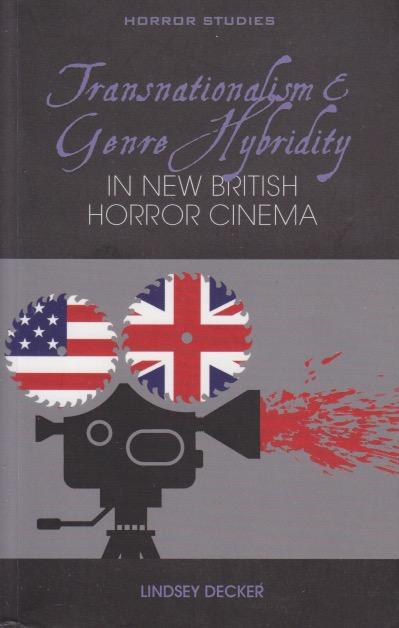
Some books get you thinking in ways you don’t expect. That’s one of the pleasures of reading. Lindsey Decker’s Transnationalism and Genre Hybridity in New British Horror Cinema may sound terribly specific—there are a lot of qualifiers in that title—but it actually has some very broad implications. I was reading it specifically from the horror angle for a project I’m currently working on, but I was surprised at the social commentary I found while doing so. One of Decker’s main ideas is to show that British horror is, well, transnational while maintaining its Britishness. She focuses mainly on five films in the book, only two of which I’ve seen. Very aware of the history of British cinema, she points out many characteristic features and situations that make British horror what it is.
The social commentary comes in when discussing “hoodie” horror films. These are movies showing how the working class, particularly the youth, are dangerous and anti-society. The more I read the more it occurred to me that imperialist, capitalist systems are built on the corpses of the poor. Even good kids from bad situations have difficulty getting ahead in life and those above them on the “social ladder” more or less despise them and make policies to keep them in poverty. This leads to anger and resentment, and often, in reality, this spills over into violence. It all comes down to those who benefit from the system refusing to make it more equitable. When the inevitable happens—those pressured without sufficient means boil over—they are blamed for their own circumstances.
Having grown up in a working class system and having struggled all my life to somehow maintain a comfortable existence for my family, I know the kinds of obstacles faced. In my particular case, retirement is not a likely outcome. I’ve worked, except for (and often even) when I was in higher education, since fourteen. I’ve seen others with connections, educated parents or influential friends, get ahead. I’ve also watched while many of us get shunted aside because, well, who are you? Some people wonder why I watch horror. There are many reasons for it, and at times I think maybe I’ve seen enough. But then I look around at the corpse-strewn foundations of our current system and I see how reality plays into that fear. Decker, I’m pretty sure, was meaning for her words to apply to mainly the fiction of horror, but there was a different kind of hybridity there as well, at least for me.
